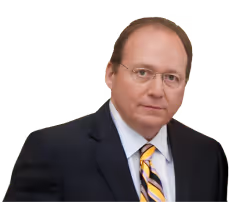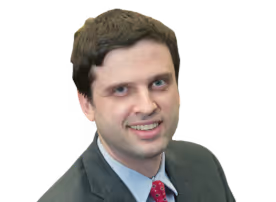Jury Verdict Exposes Hidden Vehicle Data and Raises Questions About Tesla’s Liability in Autopilot Crashes Nationwide
A Florida jury recently ordered a $243 million verdict against Tesla after a fatal crash tied to its Autopilot system. The case has captured national attention not only because of the devastating loss of life but also because critical vehicle data was uncovered that Tesla previously claimed it did not possess.
This case highlights a key issue: when vehicles operate with advanced driver-assist software, who is responsible when something goes wrong — the driver, the manufacturer, or both? The outcome sends a powerful message to automakers and underscores the legal rights of victims harmed in Autopilot crashes.
Understanding Autopilot Technology and Its Risks
Tesla markets its Autopilot system as a driver-assist feature intended to reduce driver workload. The system combines adaptive cruise control, lane-keeping technology, and automated steering. While Tesla’s manuals instruct drivers to remain alert and keep their hands on the wheel, marketing materials and consumer perception often suggest a higher level of autonomy than the system truly provides.
The risks are significant. When drivers become complacent or distracted, they may over-rely on Autopilot to detect hazards and respond in time. Unlike fully autonomous systems, Autopilot cannot always account for sudden roadway changes, stopped vehicles, or unusual conditions.
The recent Florida crash illustrates the dangers of this disconnect between marketing, real-world performance, and user behavior.
What Happened in the Florida Case
The fatal wreck occurred in 2019 when a Tesla operating on Autopilot collided with a parked vehicle in Key Largo. The crash killed a passenger and left another occupant with serious injuries. Tesla initially argued that the accident was caused by the driver’s distraction, pointing to warnings in its manual that drivers must remain attentive.
The pivotal moment in the case came when a hacker uncovered a “collision snapshot” stored in the vehicle’s Autopilot computer. Tesla had previously told investigators and victims’ families that such data did not exist. Once presented in court, the data revealed that the Tesla had detected both a vehicle and a pedestrian in its path shortly before impact.
Jurors concluded that Tesla bore partial liability not only for the crash itself but also for how it handled critical safety data.
The Role of Hidden Data in the Verdict
The “collision snapshot” data proved to be the defining evidence. This record showed that the Tesla’s sensors had detected hazards well in advance but did not properly respond. It also showed that Tesla’s servers received the data immediately after the crash, contradicting the company’s earlier claims.
The existence of this data raised two major concerns:
- Transparency: Victims’ families alleged Tesla misled them by claiming the data was unavailable.
- Accountability: The data showed Autopilot’s limitations more clearly than Tesla admitted publicly.
For jurors, the revelation that evidence was concealed or minimized had a powerful effect. It reinforced arguments that Tesla’s communications with consumers and investigators lacked candor.
Why the Jury Found Tesla Partially Liable
Jurors awarded $243 million, finding that Tesla’s actions contributed to the crash and its aftermath. Several factors influenced this decision:
- The company failed to adequately warn drivers about the road ending in the area of the crash.
- Autopilot did not respond appropriately to visible hazards.
- Tesla misled victims’ families and investigators about the existence of key safety data.
Although Tesla argued that the driver was ultimately responsible, the jury concluded that corporate accountability was also necessary. This marks a rare public defeat for Tesla’s Autopilot program, which has previously avoided significant courtroom losses through settlements or favorable rulings.
Implications for Victims Nationwide
The verdict is already being cited in other lawsuits across the country. Cases in Texas and California are moving forward with plaintiffs using the Florida outcome as evidence that Tesla’s Autopilot may pose hidden dangers. Investors have also filed separate lawsuits alleging the company misled shareholders about its technology.
For victims of Autopilot-related crashes, the Florida case demonstrates that juries are willing to hold Tesla accountable when evidence shows safety failures or withheld data. Families harmed by similar crashes may now have stronger grounds to pursue claims.
Legal Rights for Families and Survivors
Victims of Autopilot-related crashes may be able to pursue several types of legal claims:
- Product Liability: If the technology failed to perform as safely as intended, the manufacturer may be responsible.
- Negligence: Failure to warn drivers adequately or provide accurate data could constitute negligence.
- Wrongful Death: Families who lose a loved one may recover damages for funeral expenses, loss of companionship, and financial support.
- Personal Injury: Survivors of crashes may seek compensation for medical bills, lost wages, and long-term care.
The damages in these cases can be substantial, given the medical, emotional, and financial toll.
Why Legal Representation Is Crucial
Autopilot crash cases involve complex technology, corporate data systems, and high-powered defense teams. Victims pursuing claims against a global automaker face a significant challenge without strong legal support. Attorneys handling these cases must:
- Access vehicle data logs and technical evidence.
- Work with crash reconstruction specialists.
- Navigate state and federal regulations governing vehicle safety.
- Advocate for victims against powerful corporate defendants.
For injured individuals and grieving families, pursuing justice can feel overwhelming. Legal representation ensures that their rights are protected and their voices are heard in court.
FAQs About Autopilot Crash Lawsuits
- What is Autopilot, and how is it different from self-driving? Autopilot is a driver-assist feature, not a fully autonomous system. Drivers must remain alert and keep their hands on the wheel. Misunderstanding its capabilities can lead to over-reliance and dangerous crashes.
- Why was Tesla ordered to pay $243 million? Jurors found Tesla partially liable for a 2019 fatal crash. The verdict was based on evidence showing that Tesla withheld critical crash data and failed to adequately warn about hazards.
- Does this mean all Autopilot crashes are Tesla’s fault? Not necessarily. Each case depends on specific facts. However, the verdict shows that courts will consider manufacturer responsibility when Autopilot does not function safely or when data is mishandled.
- If my family member was injured in an Autopilot crash, can I sue?Yes. Victims and families may pursue lawsuits for product liability, negligence, wrongful death, or personal injury, depending on the circumstances of the crash.
- What kind of compensation can victims recover? Damages may include medical bills, funeral costs, lost wages, pain and suffering, and long-term care expenses. In wrongful death cases, families may also seek damages for emotional loss and future financial support.
- How do lawyers prove Autopilot caused a crash? Attorneys often rely on vehicle data logs, sensor records, crash reconstructions, and expert testimony. The Florida case showed that hidden or overlooked data can be uncovered and used in court.
- Is there a deadline to file an Autopilot lawsuit? Yes. Each state has a statute of limitations, which limits the time to bring a claim. It is important to contact an attorney as soon as possible to preserve your rights.
Contact Parker Waichman LLP For A Free Case Review
If you or your loved one was injured or killed in a crash involving Autopilot technology, you may be entitled to substantial compensation. Parker Waichman LLP is a national personal injury law firm actively investigating Autopilot-related crash cases. Our attorneys have the resources and determination to stand up against large corporations and fight for victims’ rights.
Call 1-800-YOUR-LAWYER (1-800-968-7529) now for a free, no-obligation consultation. We will review your case, explain your options, and pursue the justice and financial recovery you deserve.


































